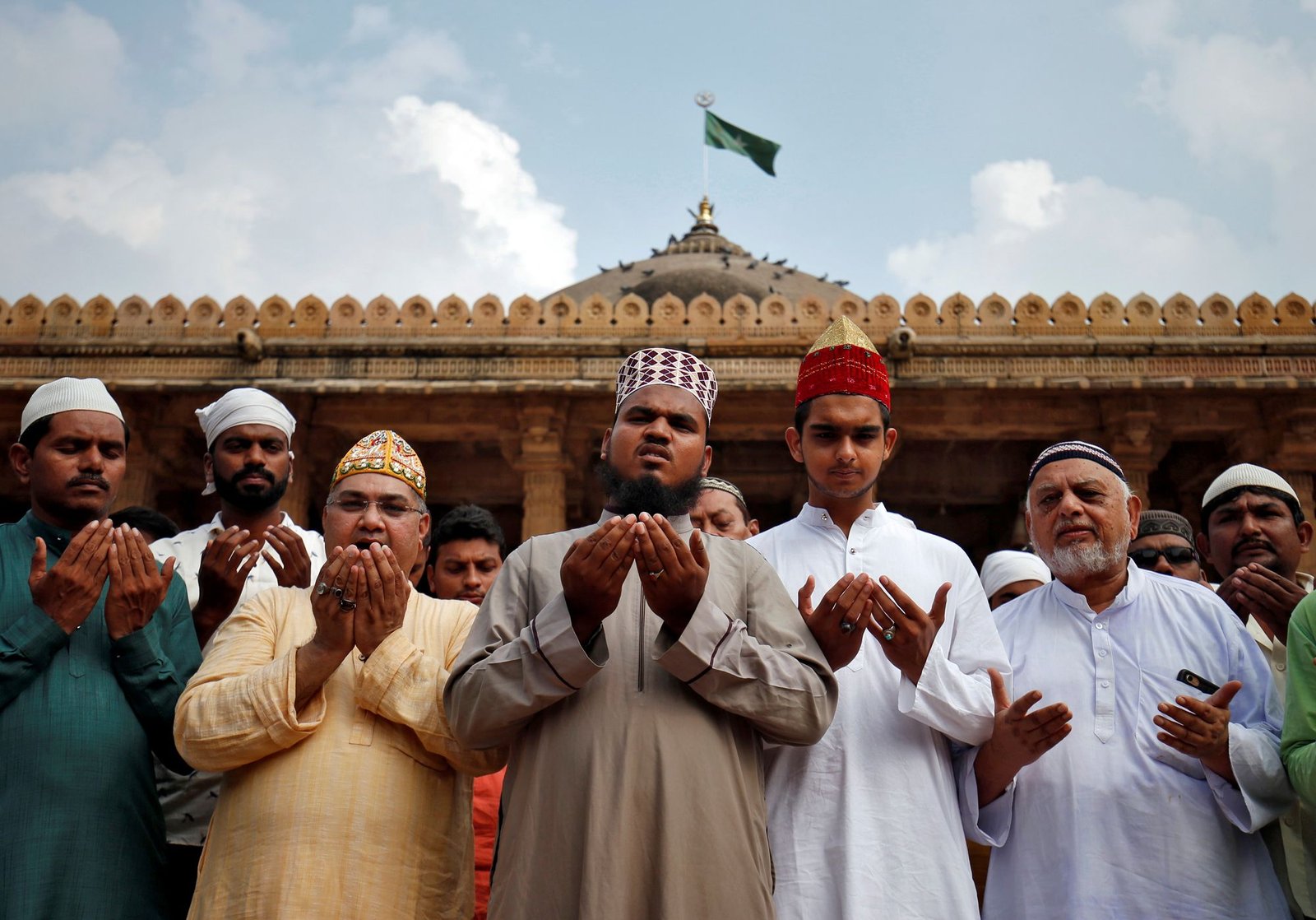In the majority Hindu town of Ayodhya, where the anticipation for the inauguration of a new multimillion-dollar temple is palpable, saffron flags fly high as locals prepare for the arrival of Indian Prime Minister Narendra Modi. However, amidst the excitement, many of the town’s 500,000 Muslims, including 65-year-old Maulana Badshah Khan, express their apprehension and plan to stay home. Their fears stem from the memories of religious violence over 30 years ago when Hindu nationalists destroyed the Babri Masjid, a 16th-century mosque, sparking riots across India.
On Monday, Modi is set to officially open the Ram Janmabhoomi Mandir, an opulent temple constructed on the same site, symbolizing Hindu nationalist ambitions. Khan sees the celebration as a clear indication of Muslims’ increasing marginalization under the leadership of Modi’s Bharatiya Janata Party (BJP), stating, “The temple holds the symbolic value of showing the Muslims their place in New India.”

As excitement builds, over 7,000 people are invited to Ayodhya to attend the ceremony in person, and tens of thousands of Hindus flock to the small town to participate in the festivities. However, Ayodhya’s Muslims harbor concerns about potential trouble caused by outsiders, reminiscent of the violence in 1992. Azam Qadri, the 39-year-old head of a local religious body, expresses worry about the arrival of outsiders, noting the history of trouble whenever people come from outside.
Haji Mahboob, who lost two relatives during the 1992 violence, shares the local Muslims’ concerns about emboldened crowds chanting provocative slogans. He laments the sense of hopelessness within his community, stating that the controversy surrounding the temple’s construction, which began in 2019 with the Supreme Court granting permission, has not brought an end to their woes. Instead, Hindus have targeted more mosques across the country.
The rise of Hindu nationalism under Modi’s leadership has introduced legislation rooted in Hindutva, perceived as discriminatory towards Muslims. Critics argue that these laws contribute to the marginalization of Muslims, exacerbating religious tensions. Modi’s promise to build the Ram Temple on the disputed site has become a central theme in his political agenda, aiming to secure a rare third election win.
The involvement of Modi in the temple’s inauguration is seen by some, including Nilanjan Mukhopadhyay, as a sign of Hindu hegemony in India. Mukhopadhyay emphasizes the blurred lines between state and religion, leading to feelings of sadness and fear among the country’s Muslims. There are reports of Muslims advising each other to avoid travel and take precautions to ensure their safety during this period.
In response to concerns, BJP spokesperson Nalin Kohli denies allegations of Muslim marginalization, asserting that the inauguration of the Ram Mandir is a cause for celebration. He emphasizes that the government’s initiatives do not discriminate based on religion, caste, or region.
The aftermath of the Babri Masjid’s demolition led to the rallying of Hindu nationalists to build the Ram Mandir, creating a charged atmosphere that worried Indian liberals. The 2019 Supreme Court judgment not only paved the way for the temple but also allocated land for Ayodhya’s Muslims to build another mosque in a nearby village called Dhannipur.
For many Muslims, the construction of the new mosque does not hold emotional significance, and the delays in its construction have added to their sense of hopelessness. Arafat Shaikh, appointed to lead the mosque’s construction, outlines ambitious plans for the mosque, aiming for unique features like five minarets, additional land for educational institutions, a vegetarian kitchen, and a saffron-painted 21-foot-long Quran.
As Ayodhya prepares for the grand inauguration, enduring divisions and heightened religious tensions underscore the complex landscape of India’s socio-religious fabric. While some view the temple’s opening as a symbol of a new Hindu nation, others express concerns about the blurred lines between religion and the state, as well as the impact on the country’s Muslim minority.
Book Paris Trip
Paris sightseeing
Book Paris activities
Louvre museum paris
Paris limousine rental
Rolls Royce Paris
Eiffel Tower Paris
Airport Transfer Paris
Book Paris Taxi
Seine River Cruise
Wine Tasting Paris
Paris luxury hotels
Switzerland luxury hotels
Europe Car rental
Europe coach rental
Paris Limousine
Dior Paris
Beauvais Airport transfer
